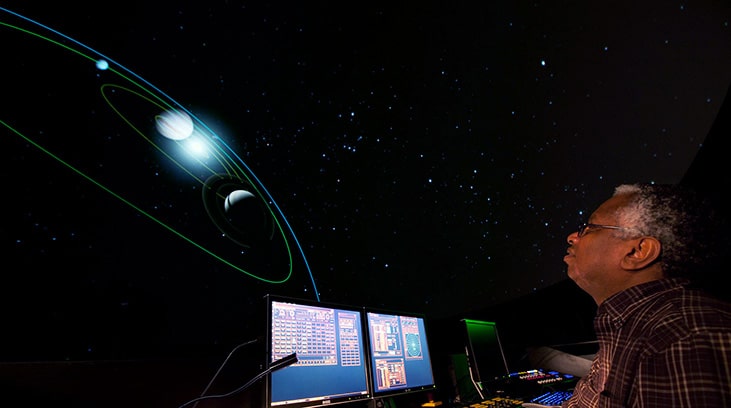When people discuss how to make science interesting and exciting, the conversation usually gravitates around children and younger audiences.
Esteemed astrophysicist and Cosmos host Neil deGrasse Tyson, on the other hand, wants to shift the conversation toward adults.
According to Tyson, it’s just as important for adults to embrace their “inner geek” and become fired up about science as it is for children to feel the same way.
For each person, that “inner geek” is going to be something different, but Tyson explained that the important thing is just making sure you remain curious and nurture your thirst for knowledge.
“Your inner geek is simply what empowers your curiosity about the natural world,” he told National Geographic. “When you see a problem, you ask, ‘I wonder how we can solve it?’ rather than, ‘I wonder how fast we can run away from it?’”
Tyson believes that many adults just need a small spark to ignite their inner geek while others may need a little more coaxing to really get interested in the scientific mysteries that surround us every day.
“In most adults I’ve met, there is some ember within that carries their soul of curiosity,” he added. “For some it is almost extinguished and needs to be fanned. For others it’s like a pilot light. You just have to put some extra fuel there, and it ignites.”
A huge part of adding fuel to the fire is by simply acknowledging how vital science really is.
Without a thorough understanding of the world around us, our quality of life may not improve and innovation may come to a screeching halt.
“I don’t know if science can save us,” Tyson told National Geographic. “What I do know is that the absence of science will kill us. If you look at the improvement in quality of life around the world, it is entirely brought about by advances in science and technology.”
He went on to explain that those years of innovation and improving the quality of everyday life are exactly why we aren’t worried about the same things that civilizations from hundreds of years ago were worried about.
“If you polled people in 1900 and asked them what they feared most for civilization, they’d say they worry about hunger and overpopulation,” he said before explaining that there were not efficient farming methods at the time.
Fast forward years later and people have figured out how to farm in an efficient manner – in a manner that makes starvation less of a worry than it was in the past.
“Starvation was a big issue because they knew what the production levels of farms were and saw the rate of population growth,” Tyson continued. “What they didn’t know was that we’d figure out how to farm better. They were not considering innovation.”

